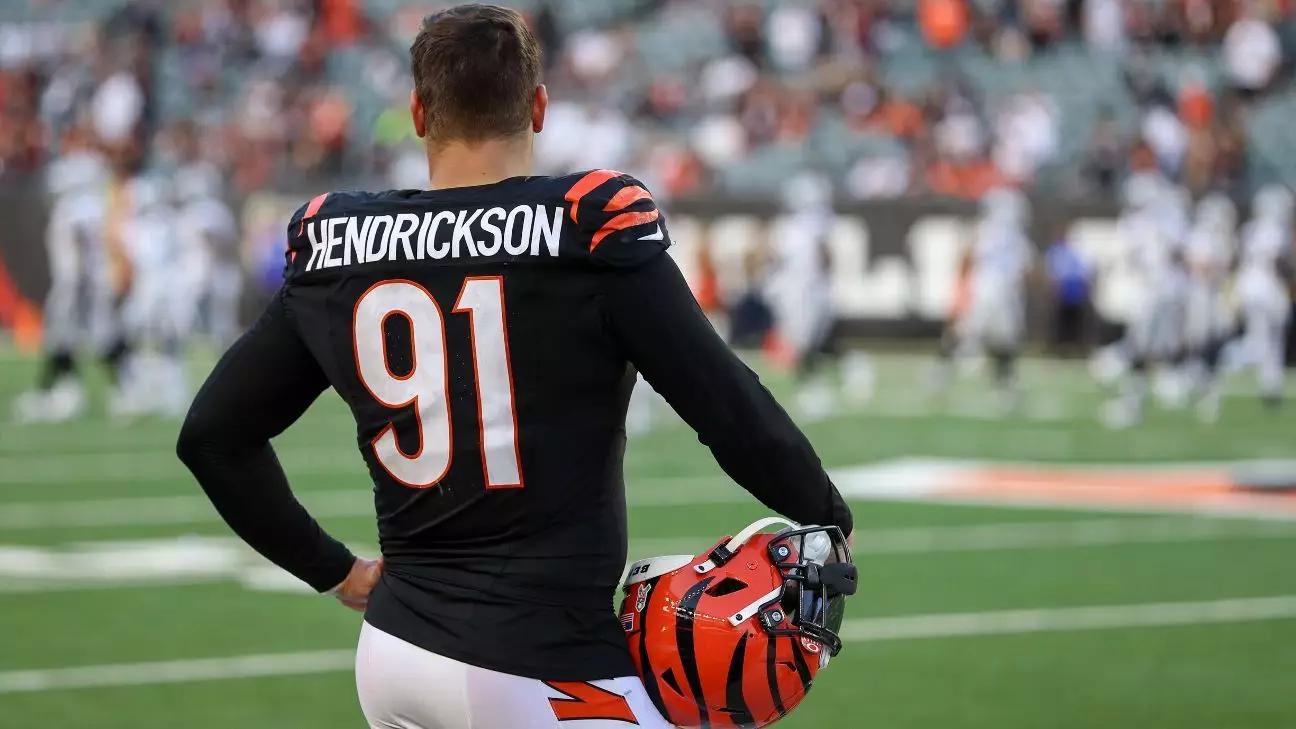In today’s NFL landscape, player negotiations often resemble a battle of attrition, where the loudest voices are those willing to push boundaries. Trey Hendrickson’s firm stance on not playing this season exemplifies a courageous challenge to traditional power dynamics. Rather than passively accepting contractual terms, Hendrickson boldly demands fair compensation and guarantees—highlighting a shift toward player empowerment. His refusal to practice and his insistence on securing guaranteed money reflect a deeper desire to achieve financial security and respect, transcending mere personal gain. This stance suggests a growing trend where athletes prioritize their long-term wellbeing over short-term compromises, potentially reshaping how teams and agents negotiate future deals.
Why Hendrickson’s Position Signals a New Cultural Norm
Hendrickson’s approach signals an important cultural shift in professional football. For too long, players have been viewed as commodities, often subjected to contracts that favor teams at their expense. Hendrickson’s insistence on guaranteed salary after the first season exposes the vulnerability that many NFL players face—high risk, limited security. His willingness to stand firm, even at the cost of missing out on a season, underscores a desire to redefine contractual fairness. It challenges the league’s culture of ephemeral loyalty and emphasizes the importance of tangible security. Hendrickson is not merely seeking personal advantage; he’s advocating for broader change, positioning himself as a role model for players who want more control over their careers and financial destinies at a critical juncture.
Implications for the Future of Player-Team Relations
This intense moment of negotiation could serve as a catalyst for more equitable negotiations across the NFL. Hendrickson’s actions highlight a crucial vulnerability in current contract structures: the lack of guaranteed money beyond a single season. If players persist in demanding guarantees, teams might face a future where player loyalty is directly linked to financial security. Furthermore, Hendrickson’s stance raises questions about the power balance between players and franchises—should players accept less security for team loyalty? Or should they push for guarantees that protect their future irrespective of team success? His refusal to back down could inspire a wave of similar stand-offs, demanding a more balanced approach that values player contributions beyond the game-day performance.
My Personal Reflection: A Bold Step Toward Valuable Change
From my perspective, Trey Hendrickson’s unwavering position is not just a contractual dispute; it’s a statement about the value and respect players deserve. His willingness to forego a season to make a point signifies a level of courage that is often lacking in professional sports negotiations. It forces us to reconsider what “loyalty” truly entails—should teams be able to exploit players with uncertain guarantees? Hendrickson’s stance is not merely self-interest; it’s a wake-up call for the NFL to rethink its approach to player contracts. If more athletes follow his lead, the league could experience a profound shift toward fairness and transparency—ultimately benefitting both players and franchises by fostering a culture of mutual respect and security.


Leave a Reply